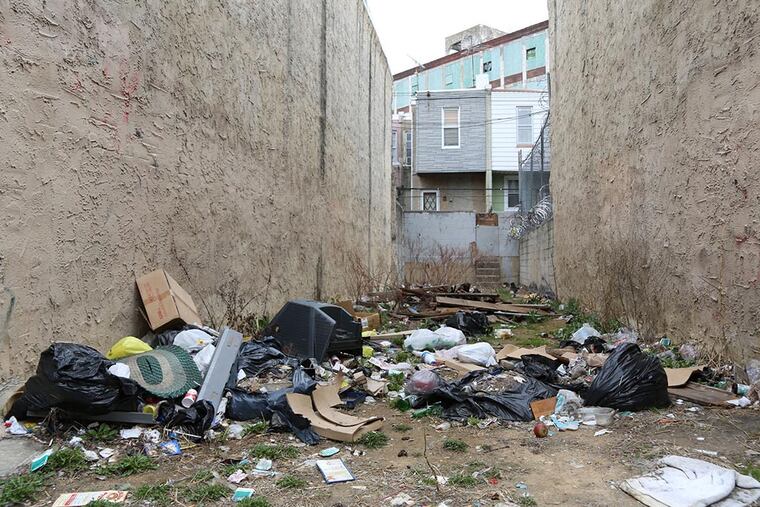Kensington’s hepatitis A outbreak another argument for supervised injection sites | Editorial
No human should live in a neighborhood in which there is so much feces that Hepatitis A spreads rapidly.

The costs of the opioid crisis to the city and its residents are staggering, both in human and in fiscal terms, especially for a city that has its fair share of other issues to handle. Now there’s a new challenge that will strain our public health resources even more: an outbreak of hepatitis A, a liver infection that is transmitted by oral contact with feces.
Hepatitis A is usually tied to contaminated food or water, but that is not the case currently. The outbreak is attributed to the high level of public defecation in the streets of neighborhoods like Kensington that bear the brunt of the opioid crisis in the city.
Most years, there are fewer than six cases of hepatitis A in Philadelphia. This year, there have already been more than 150 cases diagnosed. The disease usually manifests with fever, vomiting, and jaundice. It can run its course without treatment.
Last week, Philadelphia officials declared a health emergency due to the outbreak. According to the Philadelphia Department of Health, almost 70 percent of the new hepatitis A cases are among people who use drugs, at least a quarter of whom are homeless. The Centers for Disease Control and Prevention is tracking outbreaks in 29 states including Pennsylvania; the commonwealth declared an outbreak in May.
Public Health Commissioner Thomas Farley says that other cities that contained similar outbreaks did so through a vaccination campaign. But the city isn’t equipped to provide all the necessary vaccines; the $40 per-dose cost could quickly add up. Farley hopes that the emergency declaration will compel health-care providers to offer vaccines to anyone who is at risk — people experiencing homeless, people who use drugs, men who have sex with men, and people with liver disease. For example, the emergency departments around the city could offer the vaccine for every person treated for an overdose. Providers would likely be reimbursed by the insurance companies.
The Department of Public Health is also exploring public bathrooms as a solution. Decreasing public defecation, and increasing places to wash hands, can limit the spread of the disease. While handwashing stations can be rolled out quickly, public bathrooms require hygiene, supplies including water, and staffing. In Los Angeles, the estimated cost of a single toilet for a year is more than $300,000. The opioid crisis adds another dimension of concern: overdoses. Each stall could become an unsafe and unsupervised injection site.
The hepatitis A outbreak is another reminder of the benefits of finally establishing a supervised injection site: a well-staffed, clean space in which people who spend most of their day on the street could take care of themselves, including going to the bathroom with privacy and decency.
No human should live in a neighborhood in which there are so much feces that hepatitis A spreads rapidly. While the city takes immediate measures to contain the current outbreak, only dramatically reducing the number of people living on the streets — and forced to defecate there — will prevent the next one.